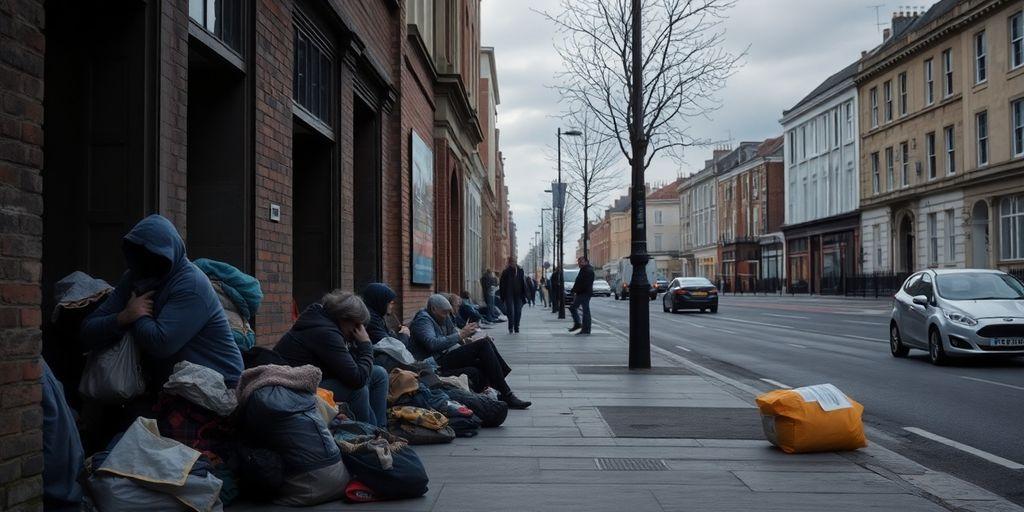The UK Government has initiated a comprehensive inquiry into its management of homelessness, particularly focusing on the alarming rise in rough sleeping across England. This inquiry, led by the Housing, Communities and Local Government (HCLG) Committee, aims to uncover the root causes of homelessness and evaluate the effectiveness of past strategies.
Key Takeaways
- The inquiry will assess the effectiveness of previous government strategies on homelessness.
- Recent statistics show a record high of over 320,000 households facing homelessness in England.
- Economic challenges are hindering the delivery of new housing.
- The inquiry will include testimonies from key stakeholders in the homelessness sector.
Background Of The Inquiry
The inquiry commenced with an evidence session on 12 November 2024, featuring testimonies from prominent figures such as Lord John Bird, co-founder of The Big Issue, alongside representatives from local councils and various homeless charities. The aim is to gather insights and recommendations that could inform future policies and initiatives.
Rising Homelessness Statistics
Recent data highlights the urgency of this inquiry. In 2021, Shelter estimated that approximately 274,000 individuals were homeless in England, with 2,688 of those sleeping rough. By 2023-2024, the number of households experiencing homelessness has surged to over 320,000, marking the highest figure on record.
Economic Challenges Impacting Housing
The UK is grappling with significant economic challenges that are adversely affecting housing delivery. In the 2022-23 period, only about 235,000 new homes were constructed, falling short of the previous government’s target of 300,000 new dwellings annually.
The government has pledged to reform the planning system and aims to deliver 1.5 million new homes. However, persistent issues such as inflation, a constrained labour market, and shortages in construction materials pose substantial barriers to achieving these ambitious goals.
Criticism Of Current Homelessness Strategies
A report from the National Audit Office (NAO) has raised concerns regarding the effectiveness of current homelessness programmes. It criticises the previous Conservative government for a lack of coherent strategy, fragmented funding, and failure to adequately address housing supply issues since the implementation of the Homelessness Reduction Act in April 2018.
The Role Of The Private Rented Sector
Research indicates that over one million properties in England were unoccupied in 2022, representing 4.01% of all dwellings. This situation presents an opportunity for the private rented sector (PRS) to alleviate some of the pressures contributing to rough sleeping.
To encourage landlords to provide long-term, affordable housing solutions, clear policies and incentives are essential. Suggestions include tax relief for landlords who house individuals transitioning from homelessness and funding for rent guarantee schemes to mitigate risks associated with renting to vulnerable tenants.
Future Directions
The inquiry is expected to foster stronger collaboration between local authorities, housing associations, and the private sector. By addressing the root causes of homelessness and creating effective support networks, the government aims to ensure that individuals experiencing rough sleeping have access to comprehensive services.
As the inquiry progresses, it will be crucial for the government to balance tenant rights with the sustainability of the rental market, ensuring that policies encourage investment while protecting vulnerable individuals from homelessness.






